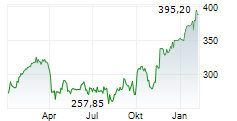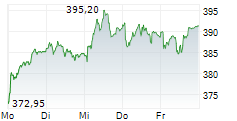
- The study met its primary endpoint of overall survival with a 41% reduction in the risk of death in people with relapsed or refractory (R/R) diffuse large B-cell lymphoma (DLBCL) treated with Columvi plus chemotherapy1
- This Columvi combination could provide a much-needed off-the-shelf treatment option for people with transplant-ineligible R/R DLBCL
- Data were featured in the congress Press Briefing and presented today in the Plenary Abstracts Session at EHA 2024 as a late-breaking oral presentation
Basel, 15 June 2024 - Roche (SIX: RO, ROG; OTCQX: RHHBY) announced today statistically significant and clinically meaningful results from its Phase III STARGLO study of Columvi® (glofitamab) in combination with gemcitabine and oxaliplatin (GemOx) versus MabThera®/Rituxan® (rituximab) in combination with GemOx (R-GemOx) for people with relapsed or refractory (R/R) diffuse large B-cell lymphoma (DLBCL) who have received at least one prior line of therapy and are not candidates for autologous stem cell transplant, or who have received two or more prior lines of therapy.1 Data were featured in the congress Press Briefing and presented today in the Plenary Abstracts Session at the European Hematology Association (EHA) 2024 Congress as a late-breaking oral presentation.1
"The results from STARGLO are the first to show the potential of a CD20xCD3 bispecific antibody to make a difference in second or later-line DLBCL in people who are ineligible for transplant and have limited options," said Jeremy Abramson, M.D., Director, Jon and Jo Ann Hagler Center for Lymphoma at the Massachusetts General Hospital Cancer Center, and principal investigator of the STARGLO study. "Glofitamab in combination with GemOx showed clinically significant improvement in overall survival, as well as key secondary endpoints, and the benefits were reinforced with an additional 11 months of follow-up."
The primary analysis (median follow-up of 11.3 months) confirmed that the study met its primary endpoint of overall survival (OS), demonstrating that patients treated with Columvi plus GemOx lived significantly longer, with a 41% reduction in the risk of death (hazard ratio [HR]=0.59, 95% CI: 0.40-0.89, p=0.011) versus R-GemOx.1 Median OS was not reached with the Columvi regimen versus nine months for R-GemOx.1 Safety of the combination appeared consistent with the known safety profiles of the individual medicines.
Pre-specified exploratory subgroup analyses showed comparable results, including consistency across the clinically relevant stratification factors of line of therapy (second-line versus third-line+) and outcome of last therapy (relapsed versus refractory). Regional inconsistencies were observed, however interpretation is limited given the exploratory nature of these analyses and small subgroups with wide confidence intervals.
"This marks a first step in advancing Columvi combinations in earlier settings to address the urgent need for the 40% of people who will relapse or have refractory disease and who have limited options," said Levi Garraway, M.D., Ph.D., Roche's Chief Medical Officer and Head of Global Product Development. "Moreover, patients do not have to wait to start treatment with Columvi. This could be particularly important for patients with highly aggressive disease who are at risk of rapid disease progression."
The Columvi combination also met its key secondary endpoints, with a 63% reduction in risk of disease worsening or death (progression-free survival, PFS) compared to R-GemOx (HR=0.37; 95% CI: 0.25-0.55, p<0.0001).1 A follow-up analysis was conducted after all patients had completed therapy (median follow-up of 20.7 months), which showed continued benefit in both primary and secondary endpoints.1 Median OS for people treated with the Columvi combination was 25.5 months, nearly double what was seen for people treated with R-GemOx at 12.9 months, and more than twice as many patients experienced a complete response (58.5% versus 25.3%, respectively).1
Adverse event (AE) rates were higher with the Columvi combination versus R-GemOx, noting higher median number of cycles received with Columvi combination (11 versus 4). One of the most common AEs was cytokine release syndrome, which was generally low grade (Any Grade: 44.2%, Grade 1: 31.4%, Grade 2: 10.5%, Grade 3: 2.3%) and occurred primarily in Cycle 1.1
Columvi is the first CD20xCD3 bispecific antibody to demonstrate a survival benefit in DLBCL in a randomised Phase III trial, demonstrating the potential of this type of therapeutic combination to improve survival outcomes in earlier lines of treatment. The standard second-line therapy for R/R DLBCL patients has historically been high-dose chemotherapy followed by stem-cell transplant, however, not everyone with R/R DLBCL is a candidate due to age or coexisting medical conditions. Newer therapies are also becoming available, but barriers remain for many, and alternative treatment options are needed for these patients. Columvi is given as a fixed-duration treatment, offering people with R/R DLBCL a treatment end date and the possibility of a treatment-free period, unlike continuous treatments.
Results from the STARGLO study will be submitted to global health authorities, including the U.S. Food and Drug Administration (FDA) and the European Medicines Agency.
Columvi is also being investigated in other aggressive, hard-to-treat lymphomas and was recently granted Breakthrough Therapy Designation by the FDA for the treatment of adult patients with relapsed or refractory mantle cell lymphoma who have received at least two prior therapies based on results from the Phase I/II NP30179 study.
About the STARGLO study
The STARGLO study [GO41944; NCT04408638] is a Phase III, multicentre, open-label, randomised study evaluating the efficacy and safety of Columvi® (glofitamab) in combination with gemcitabine plus oxaliplatin (GemOx) versus MabThera®/Rituxan® (rituximab) in combination with GemOx in patients with relapsed or refractory diffuse large B-cell lymphoma who have received at least one prior line of therapy and who are not candidates for autologous stem cell transplant, or who have received two or more prior lines of therapy.2 Outcome measures include overall survival (primary endpoint), progression-free survival, complete response rate, objective response rate, duration of objective response (secondary endpoints), and safety and tolerability.2
STARGLO is intended as a confirmatory study to convert Columvi's accelerated approval in the US and conditional marketing authorisation in the EU to full approvals for people with R/R DLBCL after two or more lines of systemic therapy based on the pivotal Phase I/II NP30179 study.
About Columvi® (glofitamab)
Columvi is a CD20xCD3 T-cell engaging bispecific antibody designed to target CD3 on the surface of T-cells and CD20 on the surface of B-cells. Columvi was designed with a novel 2:1 structural format. This T-cell engaging bispecific antibody is engineered to have one region that binds to CD3, a protein on T-cells, a type of immune cell, and two regions that bind to CD20, a protein on B-cells, which can be healthy or malignant. This dual-targeting brings the T-cell in close proximity to the B-cell, activating the release of cancer cell-killing proteins from the T-cell. Columvi is part of Roche's broad and industry-leading CD20xCD3 T-cell-engaging bispecific antibody clinical development programme that also includes Lunsumio®] trial investigating Columvi in combination with Polivy® (polatuzumab vedotin), MabThera®/Rituxan® (rituximab), cyclophosphamide, doxorubicin and prednisone in previously untreated DLBCL.
About diffuse large B-cell lymphoma (DLBCL)
DLBCL is the most common form of non-Hodgkin lymphoma (NHL), accounting for about one in three cases of NHL.3 DLBCL is an aggressive (fast-growing) type of NHL.3 While it is generally responsive to treatment in the frontline, as many as 40% of people will relapse or have refractory disease, at which time salvage therapy options are limited and survival is short.4 Improving treatments earlier in the course of the disease and providing much needed alternative options could help to improve long-term outcomes. Approximately 160,000 people worldwide are diagnosed with DLBCL each year.3,5
About Roche in haematology
Roche has been developing medicines for people with malignant and non-malignant blood diseases for more than 25 years; our experience and knowledge in this therapeutic area runs deep. Today, we are investing more than ever in our effort to bring innovative treatment options to patients across a wide range of haematologic diseases. Our approved medicines include MabThera®/Rituxan® (rituximab), Gazyva®/Gazyvaro® (obinutuzumab), Polivy® (polatuzumab vedotin), Venclexta®/Venclyxto® (venetoclax) in collaboration with AbbVie, Hemlibra® (emicizumab), Lunsumio® (mosunetuzumab) and Columvi® (glofitamab). Our pipeline of investigational haematology medicines includes T-cell engaging bispecific antibody cevostamab, targeting both FcRH5 and CD3, Tecentriq® (atezolizumab), and crovalimab, an anti-C5 antibody engineered to optimise complement inhibition. Our scientific expertise, combined with the breadth of our portfolio and pipeline, also provides a unique opportunity to develop combination regimens that aim to improve the lives of patients even further.
About Roche
Founded in 1896 in Basel, Switzerland, as one of the first industrial manufacturers of branded medicines, Roche has grown into the world's largest biotechnology company and the global leader in in-vitro diagnostics. The company pursues scientific excellence to discover and develop medicines and diagnostics for improving and saving the lives of people around the world. We are a pioneer in personalised healthcare and want to further transform how healthcare is delivered to have an even greater impact. To provide the best care for each person we partner with many stakeholders and combine our strengths in Diagnostics and Pharma with data insights from the clinical practice.
In recognising our endeavour to pursue a long-term perspective in all we do, Roche has been named one of the most sustainable companies in the pharmaceuticals industry by the Dow Jones Sustainability Indices for the fifteenth consecutive year. This distinction also reflects our efforts to improve access to healthcare together with local partners in every country we work.
Genentech, in the United States, is a wholly owned member of the Roche Group. Roche is the majority shareholder in Chugai Pharmaceutical, Japan.
For more information, please visit roche.com.
All trademarks used or mentioned in this release are protected by law.
References
[1] Abramson J, et al. Glofitamab plus Gemcitabine and Oxaliplatin (Glofit-GemOx) for Relapsed/Refractory (R/R) Diffuse Large B-Cell Lymphoma (DLBCL): Results of a Global Randomized Phase III trial (STARGLO). Presented at: EHA Hybrid Congress; 2024 Jun 3-16. Abstract LB3438.
[2] ClinicalTrials.gov. A Phase III Study Evaluating Glofitamab in Combination With Gemcitabine + Oxaliplatin vs Rituximab in Combination With Gemcitabine + Oxaliplatin in Participants With Relapsed/Refractory Diffuse Large B-Cell Lymphoma: NCT04408638 [Internet; cited May 2024]. Available from: https://classic.clinicaltrials.gov/ct2/show/NCT04408638.
[3] UpToDate. Patient education: Diffuse large B cell lymphoma in adults (Beyond the Basics). [Internet; cited May 2024]. Available from: https://www.uptodate.com/contents/diffuse-large-b-cell-lymphoma-in-adults-beyond-the-basics.
[4] Sehn LH, et al. Diffuse Large B-Cell Lymphoma. N Engl J Med. 2021;384(9):842-858.
[5] World Health Organization. Numbers derived from GLOBOCAN 2022. Non-Hodgkin Lymphoma Factsheet [Internet; cited May 2024]. Available from: https://gco.iarc.who.int/media/globocan/factsheets/cancers/34-non-hodgkin-lymphoma-fact-sheet.pdf.
Roche Global Media Relations
Phone: +41 61 688 8888 / e-mail: media.relations@roche.com
| Hans Trees, PhD Phone: +41 79 407 72 58 | Sileia Urech Phone: +41 79 935 81 48 |
| Nathalie Altermatt Phone: +41 79 771 05 25 | Simon Goldsborough Phone: +44 797 32 72 915 |
| Karsten Kleine Phone: +41 79 461 86 83 | Nina Mählitz Phone: +41 79 327 54 74 |
| Kirti Pandey Phone: +49 172 6367262 | Yvette Petillon Phone: +41 79 961 92 50 |
| Dr. Rebekka Schnell Phone: +41 79 205 27 03 |
Roche Investor Relations
| Dr. Bruno Eschli Phone: +41 61 68-75284 e-mail: bruno.eschli@roche.com (mailto:bruno.eschli@roche.com) | Dr. Sabine Borngräber Phone: +41 61 68-88027 e-mail: sabine.borngraeber@roche.com (mailto:sabine.borngraeber@roche.com) |
| Dr. Birgit Masjost Phone: +41 61 68-84814 e-mail: birgit.masjost@roche.com (mailto:birgit.masjost@roche.com) |
Investor Relations North America
| Loren Kalm Phone: +1 650 225 3217 e-mail: kalm.loren@gene.com (mailto:kalm.loren@gene.com) |
Attachment
- 15062024_Columvi_STARGLO EHA 2024_en (https://ml-eu.globenewswire.com/Resource/Download/83db364a-3b1a-4040-8463-ae24c5ce60e9)




